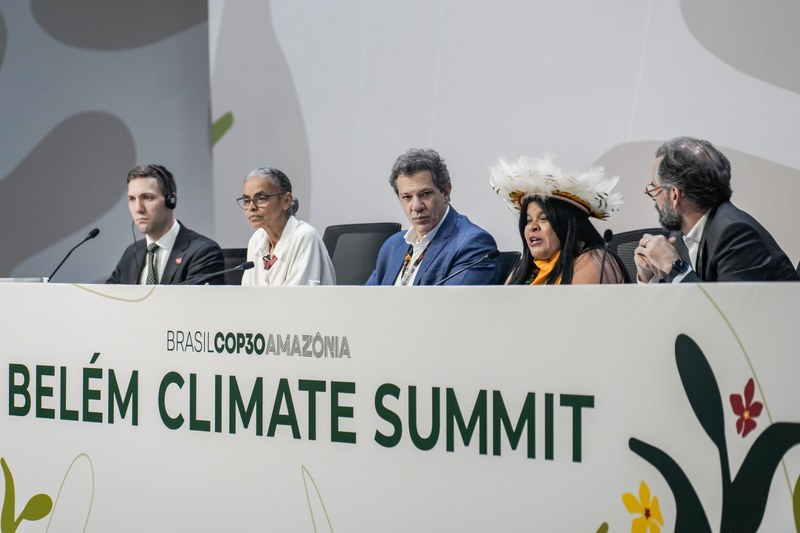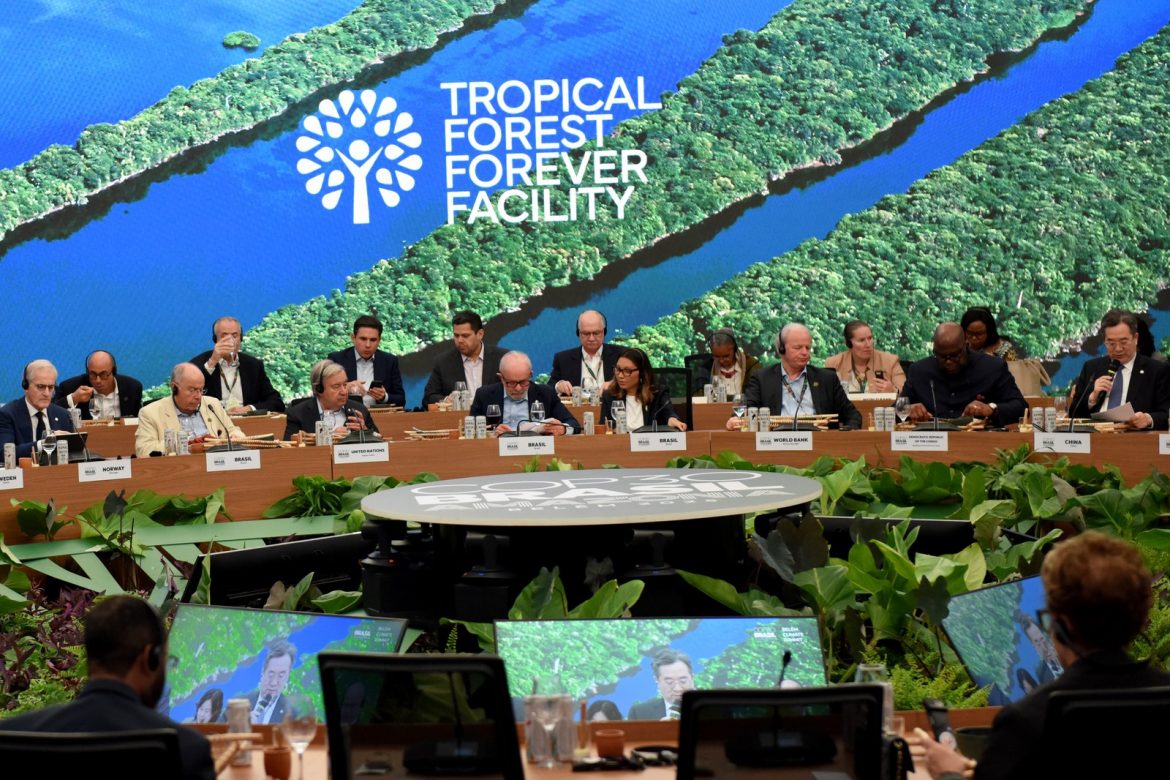In what has been described as a major move, the Brazilian COP30 presidency, this week, formally launched the Tropical Forests Forever Facility (TFFF), a mechanism intended to provide long-term, predictable financing to countries that protect and sustainably manage their tropical forests.
The TFFF was launched during a high-level event with leaders of more than thirty countries – both tropical forest nations and sponsor countries – and the UN Secretary-General to mark this milestone in global environmental finance.
The TFFF is a historic paradigm shift in global efforts to protect and restore tropical forests, as the facility will address a market failure and recognise the value of, and pay for, the ecosystem services provided by tropical forests to the world. It also creates an unprecedented global financial incentive to protect standing tropical forests, rather than destroying them.

Commitments
During the launch, Norway committed USD 3 billion over the next ten years, subject to specific conditions, while Brazil and Indonesia reconfirmed their USD 1 billion commitments. Portugal also committed USD 1 million, while France indicated that, under specific conditions, it would consider committing up to 500 million Euros until 2030.
Also, the Netherlands committed USD 5 million for the secretariat, and Germany fully endorsed the TFFF. In total, 34 tropical forest countries endorsed the TFFF Declaration, covering over 90% of the tropical forests in developing countries, including Indonesia, the Democratic Republic of Congo and China.
An unprecedented initiative
While opening the proceedings, President Lula da Silva said that the Tropical Forest Forever Facility was an unprecedented initiative, noting that for the first time in history, countries of the Global South will take a leading role in a forest agenda.
“The Tropical Forest Forever Facility will be one of the main tangible outcomes in the spirit of COP30 implementation. It is symbolic that the celebration of its birth is taking place here in Belém, surrounded by sumaúmas, açaí palms, andirobas, and jacarandás. In just a few years, we will begin to see the fruits of this fund. We will take pride in remembering that it was in the heart of the Amazon rainforest that we took this step together”.
Marina Silva, Brazil’s Minister of the Environment and Climate Change, said that the launch of the TFFF at COP30 marks a turning point in the history of tropical forest conservation.
“For the first time, we have a global mechanism that recognises the value of forest ecosystem services and offers permanent incentives for their preservation. It is a collective achievement that places Brazil at the heart of building lasting climate solutions.”
On his part, Brazil’s Minister of Finance, Fernando Haddad, described the launch as a historic day “for our whole world”. He explained that although the idea was only conceived two years ago, it has been widely accepted by various countries.
“This unprecedented innovation in international financial architecture will bring together sovereign and private capital in a robust, long-term mechanism to finally mobilise significant finance to conserve tropical forests worldwide. Brazil is proud to lead this transformative initiative, which combines climate ambition with international cooperation.”
Brazil’s Minister of Foreign Affairs, Mauro Vieira, added that the TFFF reflects Brazil’s diplomatic vision, grounded in the conviction that tropical countries know best how to conserve their forests. He added that it empowers them by providing a stable and large-scale source of resources to sustain long-term environmental policies.
“Among other features that stem from this origin are the allocation of at least 20% of its resources to Indigenous Peoples and local communities, and a governance system in which forest and sponsor countries participate on equal footing,”.
He explained that it is no coincidence that the first two countries to confirm investments in the Facility are developing nations, adding that the TFFF brings to life an idea long advocated by developed countries: engaging the private sector at scale.
“Its hybrid financial architecture combines sovereign and private capital at a 1-to-4 ratio In sum, the TFFF demonstrates that multilateralism can reinvent itself, innovate, and deliver concrete results in the face of today’s global challenges.”
What you should know:
- TFFF has the potential to support the protection of over 1 billion hectares of tropical forests in over 70 developing countries.
- Payments to countries will be based on satellite remote sensing data that tracks forest canopy cover annually in a low-cost and transparent manner.
- The TFFF design was led by Brazil in partnership with DRC, Ghana, Malaysia, Indonesia, Colombia, the UK, Germany, Norway, France, the UAE, and counted with the valuable contributions of Indigenous Peoples and local communities.
- The TFFF will be built by finance from traditional as well as non-traditional sovereign sponsor governments, philanthropy, family offices, and private sector investors.
- The TFFF has a mandatory allocation of at least 20% of payments to IPLCs – reinforcing a transformative shift in access for IPLCs.
- The TFFF asset allocation will exclude investments that have a significant environmental impact, such as those causing deforestation and greenhouse gas emissions. The TFFF will not invest in activities related to coal, peat, oil, or gas. Asset allocation must support, or at the very least not significantly harm, the overarching objectives of the TFFF.
- The TFFF has the potential to increase manyfold the budgets of the Environment Ministries in Tropical Forest Countries.
